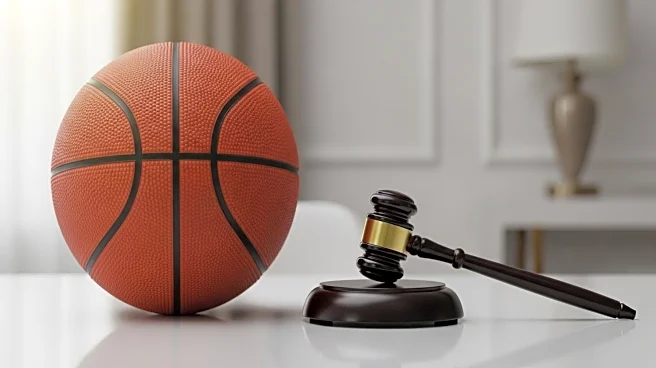What is the story about?
What's Happening?
The Women's National Basketball Players Association (WNBPA) is currently engaged in tense negotiations with the WNBA over a new collective bargaining agreement (CBA). The situation has escalated with NBA commissioner Adam Silver commenting on the personal nature of the disputes, which WNBPA President Nneka Ogwumike refutes, stating that the issues are strictly business-related. The current CBA is set to expire on October 31, and the league faces potential disruptions if a new agreement is not reached. Ogwumike, along with other WNBPA leaders, is advocating for improved player salaries and officiating standards, while also supporting Vice President Napheesa Collier's public criticism of league leadership.
Why It's Important?
The outcome of these negotiations is crucial for the future of the WNBA, as it could impact player salaries, league operations, and the overall growth of women's basketball. A failure to reach an agreement could lead to a lockout, affecting players, fans, and the league's financial health. The WNBPA's stance highlights the growing demand for better compensation and working conditions, reflecting broader trends in professional sports where athletes are increasingly vocal about their rights. The situation also underscores the importance of effective leadership and negotiation skills in resolving complex labor disputes.
What's Next?
With the CBA expiration looming, both the WNBA and WNBPA must intensify their efforts to reach a consensus. The possibility of a lockout remains if negotiations stall, which could lead to significant disruptions in the league's operations. Stakeholders, including players, team owners, and fans, are likely to closely monitor developments, with potential interventions from influential figures in the sports industry. The WNBPA's executive committee, including Ogwumike and Collier, will continue to push for transformational changes that align with players' interests.
Beyond the Headlines
The ongoing negotiations could set a precedent for future labor discussions in women's sports, highlighting the need for equitable treatment and recognition of female athletes. The WNBPA's approach may inspire other sports organizations to reevaluate their policies and practices, fostering a more inclusive and fair environment. Additionally, the involvement of players like Collier and Breanna Stewart in league management through initiatives like Unrivaled suggests a shift towards athlete-driven leadership in sports governance.
















